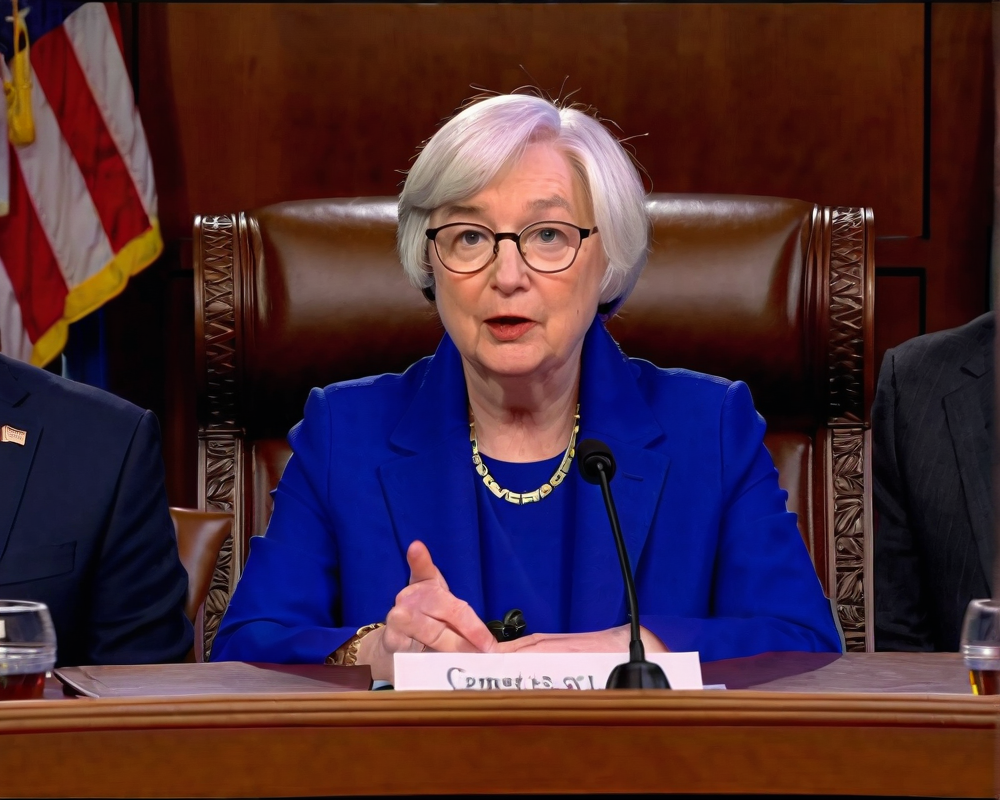Treasury Secretary Janet Yellen took center stage during a recent session of the House Financial Services Committee, where the topic of digital currencies and their role in evading sanctions against Russian oligarchs was front and center. Spoiler alert: Yellen isn’t losing sleep over it.
Crypto and Sanctions: A Limited Affair
Yellen opened the discussion by firmly stating that the Treasury Department isn’t witnessing a major uptick in cryptocurrencies being used for sanction evasion. In a reassuring tone, she mentioned, “We are aware of the possibility, clearly, that crypto could be used as a tool to evade sanctions and we are carefully monitoring to make sure that doesn’t occur.” In baby talk: ‘We’re watching this like a hawk.’
The Role of Blockchain: Transparency is Key
One of Yellen’s points of emphasis was that blockchain technology inherently provides a layer of transparency that makes illicit activities harder. “Blockchains are being regularly examined,” she stated, noting that any sizable transactions would raise flags. Basically, she illustrated that tracking crypto is not like finding Waldo in a crowded beach.
Regulating the Crypto Exchanges: Tightening the Noose
It’s not just eyes on the blockchain; Yellen pointed out that cryptocurrency exchanges must comply with stringent AML/CFT (Anti-Money Laundering and Combatting the Financing of Terrorism) regulations, ensuring they’re not operating outside the law. “We haven’t seen significant evasion through crypto so far,” she added. Just think of it as playing Monopoly, but the banks have a very vigilant manager.
Sanctions on Crypto Platforms: A Preemptive Strike
On Tuesday, the Treasury took a tough stance, imposing sanctions on a Moscow-based digital exchange, Garantex, for noncompliance with the AML/CFT rules, as well as on Hydra, a Russian-language darknet marketplace notorious for its role in facilitating ransomware. Yellen laid out that multiple U.S. agencies are working together to tighten the regulatory screws in the crypto arena.
Digital Identity: A New Frontier
Interestingly, other digital issues came up—like digital identity verification. Representative Bill Foster raised eyebrows over how these issues are being navigated. Yellen acknowledged that the Treasury has a vested interest in this area, especially concerning public benefits and tax refunds, and reassured the committee that they are active in shaping a digital identity framework. It sounds like they’re trying to build a digital Fort Knox.
The Battle for Self-Custody
Rounding out the session, Representative Warren Davidson voiced his concerns regarding self-hosted digital wallets, asserting the importance of safeguarding “self-custody of private property without an intermediary.” Yellen’s response leaned toward providing a disciplined structure while balancing individual ownership—a task akin to holding a bowl of jelly while roller-skating.
Looking Ahead
Mainly, Yellen is set to further delineate the agenda on U.S. President Joe Biden’s executive order regarding digital assets at an event at American University in D.C. tomorrow. Stay tuned; this story has more twists than a pretzel at a carnival!




